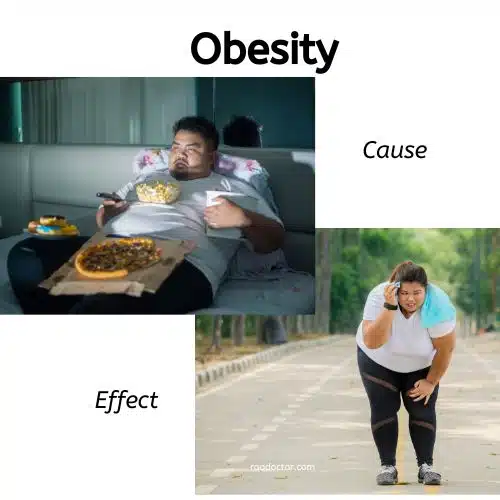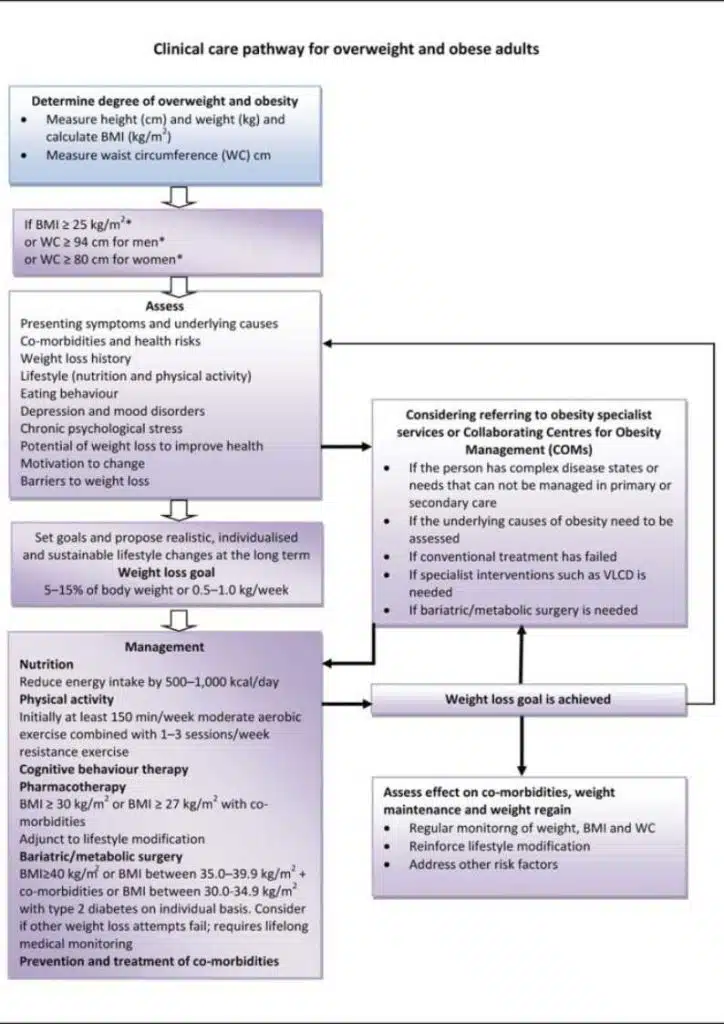Are you tired of battling the effects of obesity and the toll it takes on your health and well-being? Break free from the cycle and discover the life-changing benefits of weight loss in this short article.
What exactly is obesity?
Have a look at the picture of a Sumo wrestler below. If someone resembles this picture, that person is called obese. So, to put it in a perspective, obesity is a condition of extreme overweightness.

Obesity or extreme overweightness is spreading like an epidemic worldwide. It is the sole cause of many illnesses that include diabetes, heart disease, high cholesterol levels,stroke, osteoarthritis, etc., to name a few.
Obesity is a widespread problem that affects millions of people worldwide, leading to a range of health complications such as heart disease, diabetes, and joint problems. However, there is hope.
Research has shown that weight loss can reverse the detrimental effects of obesity, improving both physical and mental health.
By shedding those excess pounds, you can reduce the risk of chronic diseases, increase your energy levels, and regain your confidence.

In this article, we will delve into the science behind this phenomenon, exploring the various ways in which weight loss can positively impact your body and ultimately transform your life.
So, if you’re ready to take control of your health and break the cycle of obesity, read on to discover the incredible journey that awaits you.
The Impact of Obesity on Health
I have written a few articles on obesity and its effect in the past. You can refer to them by clicking here-
Obesity is not just a cosmetic concern; it is a serious health condition that can have a profound impact on various aspects of your well-being. Excess body weight puts a strain on the cardiovascular system, leading to an increased risk of heart disease, high blood pressure, and stroke.
Additionally, obesity is closely linked to the development of type 2 diabetes, as it impairs the body’s ability to regulate blood sugar levels. This chronic condition can have devastating consequences, including nerve damage, kidney disease, and vision problems.
Moreover, carrying excess weight places excessive pressure on the joints, leading to conditions such as osteoarthritis and chronic pain. It is clear that obesity is not just about appearance; it is a pressing health concern that requires intervention.
What is morbid obesity?
Morbid obesity, also known as orbit obesity, is characterized by a body mass index (BMI) of 40 or higher, or being 100 pounds or more overweight. It significantly increases the risk of developing various health conditions such as heart disease, diabetes, and joint problems.
Useful resource- Morbid obesity
Managing orbit obesity requires a comprehensive approach that includes lifestyle changes, dietary modifications, physical activity, and in some cases, medical interventions.
A combination of a healthy and balanced diet, regular exercise, behavior modification techniques, and support from healthcare professionals can help individuals with morbid obesity achieve sustainable weight loss and improve their overall health and well-being.
Understanding Weight Loss and Its Benefits
Before jumping to weight loss, let us learn more about your BMI by calculating it here [there are 2 methods-Imperial and Metric-you can use either]-
Once you have calculated your BMI, you will know where you stand. Read this to know more- BMI

Weight loss is the process of intentionally reducing body weight through a combination of
- dietary changes,
- physical activity, and
- lifestyle modifications.

Benefits of Weight Loss
While the primary goal may be to achieve a desired appearance, the benefits of weight loss go far beyond aesthetics.
Losing weight can significantly improve your overall health and well-being, reducing the risk of chronic diseases and enhancing your quality of life.
By shedding excess pounds, you can
- lower blood pressure,
- improve cholesterol levels, and
- decrease the risk of heart disease.
Weight loss also plays a crucial role in the management of type 2 diabetes, as it improves insulin sensitivity and helps regulate blood sugar levels.
Furthermore, losing weight can alleviate joint pain and improve mobility, enhancing your ability to engage in physical activities and enjoy life to the fullest.
The Science Behind Weight Loss and Its Effects on the Body
Understanding the science behind weight loss can help demystify the process and empower individuals to make informed decisions about their health.
When we consume more calories than our bodies need for energy, the excess is stored as fat. To lose weight, we need to create an energy deficit by consuming fewer calories than we burn. This can be achieved through a combination of reduced calorie intake and increased physical activity. [Learn more about Calories Management].
As we create this energy deficit, our bodies begin to tap into stored fat for fuel, leading to weight loss. Additionally, weight loss triggers a cascade of physiological changes that positively impact our health.
For example, losing weight can reduce inflammation in the body, improve insulin sensitivity, and promote hormonal balance.
These changes contribute to the reversal of obesity-related health issues and the overall improvement of well-being.
Breaking the Cycle: How Weight Loss Can Reverse Obesity-Related Health Issues
One of the most remarkable aspects of weight loss is its ability to reverse many of the health issues associated with obesity. As you shed those excess pounds, you can significantly reduce the risk of chronic diseases and improve your overall health.
For instance, weight loss has been shown to lower blood pressure and decrease the risk of heart disease. By reducing the strain on the cardiovascular system, weight loss can improve heart function and reduce the likelihood of developing cardiovascular complications.
Similarly, weight loss plays a crucial role in managing type 2 diabetes. Losing weight improves insulin sensitivity, allowing the body to use insulin more effectively and regulate blood sugar levels. This can lead to a reduction in medication requirements and a better overall management of the condition. Furthermore, weight loss can alleviate joint pain and improve mobility, enabling individuals to engage in physical activities and enjoy a better quality of life.
The Role of Diet in Weight Loss and Health Improvement
When it comes to weight loss, diet plays a critical role in determining success. Making healthy food choices and adopting a balanced eating plan is essential for sustainable weight loss and overall health improvement.
A diet rich in whole foods such as fruits, vegetables, whole grains, lean proteins, and healthy fats provides essential nutrients while keeping calorie intake in check. Incorporating plenty of fiber-rich foods into your diet can promote feelings of fullness and reduce the temptation to overeat.
Additionally, focusing on portion control and mindful eating can help develop a healthier relationship with food and prevent excessive calorie consumption.
It is important to note that there is no one-size-fits-all approach to dieting, and it is essential to work with a healthcare professional or registered dietitian to develop a personalized eating plan that meets your specific needs and goals.
Useful article- Diet and fat loss
The Importance of Physical Activity in Weight Loss and Overall Well-being
In addition to dietary changes, physical activity is a key component of successful weight loss and overall well-being. Regular exercise not only helps burn calories but also contributes to building lean muscle mass, improving cardiovascular health, and boosting metabolism.
Engaging in both aerobic exercises and strength training can help maximize weight loss and improve body composition. Aerobic exercises such as walking, jogging, swimming, or cycling increase heart rate and calorie expenditure, while strength training exercises like weightlifting or resistance training help build muscle and increase metabolism.
Finding activities that you enjoy and incorporating them into your routine can make exercise more sustainable and enjoyable. Remember that even small amounts of physical activity can make a difference, and consistency is key.
Psychological and Emotional Aspects of Weight Loss
Weight loss is not just a physical journey but also a psychological and emotional one. The process of losing weight can bring about a range of emotions, from excitement and motivation to frustration and self-doubt.
It is important to acknowledge and address these feelings to maintain a positive mindset and stay on track. Surrounding yourself with a support system of friends, family, or a weight loss group can provide encouragement, accountability, and understanding.
Additionally, practicing self-care techniques such as meditation, journaling, or engaging in hobbies can help manage stress and emotional eating.
Building a healthy relationship with food and your body is crucial for long-term success and maintaining weight loss.
Creating a Personalized Weight Loss Plan
To embark on a successful weight loss journey, it is essential to create a personalized plan that takes into account your unique needs, preferences, and goals.
Start by setting realistic and achievable targets that consider your current weight, health condition, and lifestyle.
Consult with a healthcare professional or registered dietitian to develop a personalized eating plan that provides adequate nutrition while promoting weight loss.
It is important to focus on sustainable changes rather than quick fixes, as gradual weight loss is more likely to be maintained in the long term.
Incorporate physical activity into your routine ( watch the video below), considering your fitness level and any medical conditions that may require modifications.
Remember that weight loss is a long journey, and it is important to be patient, kind to yourself, and celebrate your progress along the way.
Useful resource-
Support Systems for Successful Weight Loss
Embarking on a weight loss journey can be challenging, but having the right support systems in place can greatly increase your chances of success.
Engaging with a healthcare professional or registered dietitian can provide expert guidance, accountability, and monitoring of progress. They can help you navigate through the abundance of weight loss information and tailor a plan that suits your individual needs.
Additionally, joining a weight loss group or program can offer support, motivation, and a sense of community. Sharing your experiences and challenges with others who are on a similar journey can provide valuable insights, encouragement, and inspiration.
Remember that you are not alone, and reaching out for support can make a significant difference in your weight loss journey.
Maintaining Weight Loss and Preventing Relapse
Achieving weight loss is a significant accomplishment, but the journey does not end there. Maintaining weight loss and preventing relapse are equally important aspects of long-term success.
It is essential to adopt sustainable lifestyle changes rather than relying on temporary measures. This includes continuing to follow a balanced eating plan, engaging in regular physical activity, and practicing mindful eating.
Monitoring your weight regularly and making adjustments as needed can help prevent significant weight regain.
Additionally, it is important to address any underlying emotional or psychological factors that may contribute to weight gain.
Developing healthy coping mechanisms and seeking professional help if needed can support long-term weight maintenance and prevent relapse.
Algorithm For Obesity management-

Conclusion
Weight loss has the power to reverse the effects of obesity, improve health, and transform lives. By shedding those excess pounds, you can reduce the risk of chronic diseases, increase energy levels, and regain confidence in yourself.

Understanding the science behind weight loss, incorporating a balanced diet, engaging in regular physical activity, and addressing psychological and emotional aspects are all key components of a successful weight loss journey.
Remember to create a personalized plan, seek support, and maintain sustainable lifestyle changes to ensure long-term success.
Breaking the cycle of obesity is not easy, but with determination, commitment, and the right tools, you can reclaim your health and embrace a brighter future.
Start your journey today and discover the incredible transformation that awaits you.
You can read more on how to achieve weight loss steadily here- Fastest Way to lose weight…
Final words
I hope you have found this article useful. If yes, do share it with your friends and family members by using the social icons at the bottom of this article. You can also Click to Tweet by just clicking below-
Obesity Revisited- Can Weight Loss reduce its effect? Share on XAs the monsoon season has just begun in India, diseases of ear, nose and throat begin to show up in many people. So, my next article will be on Common Diseases of the Ear, Nose and Throat.

